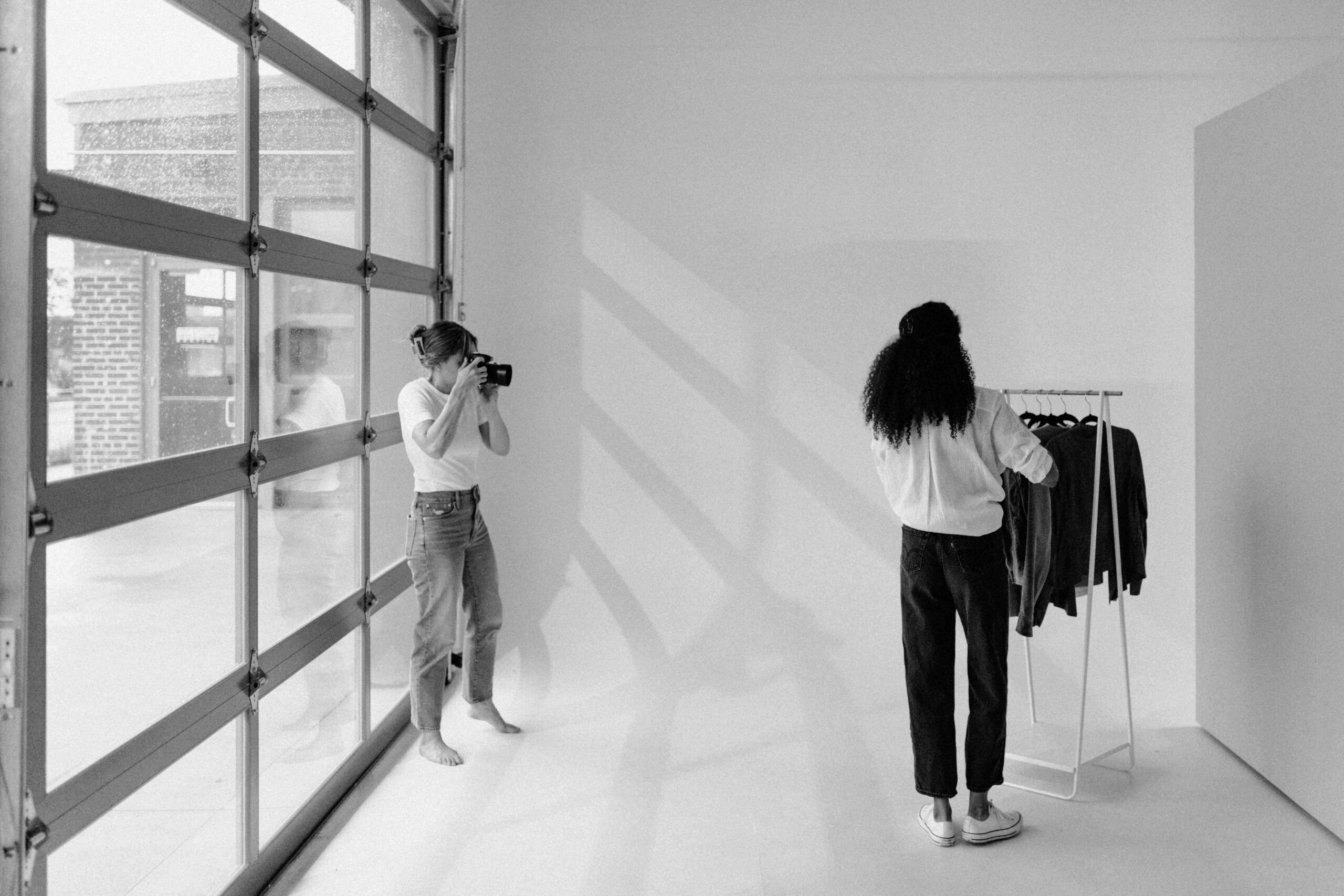Wondering what photography licensing is, and if your business should be implementing these profit-making practices? I’ve got the lessons learned and wish-I-would’ve-knowns for you to dig right into.
To note: this is not about getting a photography business license, this is about licensing the photos themselves. (Confused? Keep reading, I’ve got you.)
What is photography licensing?
Photography licensing is an approach to image copyright that allows you to retain ownership of your photos while earning money any time your photos are used.
Ultimately, you’re granting others the privilege to use your work, under specific terms and conditions, and for a set price.
This is an alternative to getting paid for a photoshoot and giving your client full ownership of the images (and essentially giving away your work). For many moons, professional photographers have instead opted to license their photographs to ensure that their business is profitable for the long-term.
Why licensing is important
We’ve all been there. You book a photoshoot for a set fee, deliver incredible imagery, and go on to find out that your photos are being used EVERYWHERE, and earning that client a good amount of money. The first few times that this happens are exciting. Your work is proving that it has inherent value. And when your photos change the bottom line for another business, they’ll probably send you some referrals and/or hopefully hire you again.
But then eventually, you realize that you are scraping by while your intellectual work is making a solid income for someone else. And then someone else. Meanwhile, you’re just charging shoot per shoot and wondering if that’s a fair, balanced, or even worthwhile approach anymore.
Handing over the full, unlimited copyright just isn’t the answer.
Benefits of image licensing
- Prevents your work from being misused or exploited
- Generates more income
- Provides legal peace of mind so your work doesn’t get into the wrong hands (pretty much why Taylor Swift is re-recording all of her songs)
- Helps you grow with the businesses you serve, as opposed to being left in the dust
- Provides more economic abundance in your family for generations
- Demonstrates that you understand your rights as a photographer and you take yourself seriously as a business owner (while also setting the expectation that others will treat you with that same level of respect)
Which platform is best for photo licensing?
I highly recommend fotoQuote to help you understand fair market rates when you start licensing your work.
The Power of Licensing in Action
Let’s see why licensing matters with some real-world examples.
Example 1: Online Sales
A well-known bourbon company hires you to take product photos for their online website. Again, you charge them not only for the time it takes to plan, shoot, and edit the images from the photoshoot, but you also set up a contract that allows you to profit from the used images.
You can either license the images for a limited amount of time, i.e. 6 months or 1 year, which requires them to renew and re-pay for longer use, or you can license your images to third parties to continue generating revenue.
Example 2: The Magazine Cover
Your breathtaking photo graces the cover of a travel magazine. Thanks to licensing, not only are you gaining exposure, but you’re also generating more income from your masterpiece.
Example 3: The Brand Campaign
A major brand wants to use your photography in their latest ad campaign. You negotiate terms, and they agree. Licensing ensures your work remains protected, and you’re compensated fairly for its use. You can negotiate where your images may be used and for how long based on the client’s needs and budget.
Example 4: The Mom & Pop
A small business owner hires you for a brand photoshoot. You charge them for the photoshoot and create an image licensing contract that allows them to use the photos for commercial purposes for two years. After that, they can renew the contract (and pay another fee) or they might want new photos and you start the cycle once more.
The debate: image licensing or one-time fees
Remember when apps used to charge a one-time fee? You could pay $2.99 and own the app forever. But then they got smarter and started charging $10 a year, or $1 a month. This earns them more money over time.
The same goes (typically) with image licensing. A one-time fee for a photoshoot is great, but even better than that is earning income for as long as the work is being used.
Lessons learned as a commercial photographer
As someone who has been in this field for nearly a decade, here are the hard lessons I’ve learned.
Lesson 1: Read Contracts Thoroughly
Remember that book you couldn’t put down? Treat your contract the same way. Read every line carefully; no one needs a plot twist when it comes to protecting their work. And if something isn’t clear, don’t hesitate to seek clarification from a lawyer or the creator of your template. (You can find the image licensing contract that I use, right here.)
Lesson 2: Don’t Undervalue Your Work
Resist the urge to hand out your work for free. You’re a professional, and your talent deserves fair compensation. Charge appropriately and create a ripple effect in the industry.
Lesson 3: Set Clear Boundaries
Define usage and duration limits like when and where your images can be used. The more precise, the better.
Lesson 4: Keep Records
Maintain records of who’s using your work, when, and for what purpose. Using a spreadsheet and calendar reminders will ensure that your image licensing is being monitored. This is something you need to keep careful watch over. Most clients won’t pay close attention to the timelines, but you should.
Lesson 5: Communicate
Don’t surprise clients after 12 months with an email that says their license to use your work has expired. Communicate from the beginning that you’ll be granting the right to use the images in a specific way. Send reminders before the term expires, and make it a part of your workflow.
Then, clients will know what to expect and won’t push back as much. Remember, if they really want to benefit from your photographic expertise, they need to respect the practices that will keep you in business. This is one of them.
License Your Images Like A Pro
Now that you’re armed with the definition and don’ts, here are a few ways to get started.
- Network — connect with photographers who are already licensing their work. Chances are they’ll have quite a few insights for ya.
- Start small — you don’t have to license every single thing right away. Begin with a simple project and get the hang of contracting, communicating, and maintaining.
- Educate yourself — take an online course (like this one) or read more on the subject. Knowledge is power.
- Grab a legal contract — there are pre-made licensing contracts that outline everything you need. Just adjust to match your specific project and go from there. (Shop here.)
- Consult a lawyer — if your field is a little more finicky, consult an expert to draft a custom licensing agreement.
Building a long-lasting business with photography licensing
With the right moves, you can protect your work, earn what you deserve, and build a name for yourself in the photography world.
Now, I’m curious. What have your experiences been in the licensing world? Share your insights in the comments below, and let’s keep this conversation going.
Find more tips on the commercial photography blog.



